In recent years, there has been a growing confidence in secure trading through darknet marketplaces, reflecting an evolution in how individuals and groups approach anonymity, security, and privacy. This shift has been spurred by advancements in encryption technology and the increasing sophistication of cybersecurity measures. Users are now able to engage in transactions with a level of assurance that their identities, data, and financial information will remain protected. While these platforms have often been associated with illicit activities, they also serve as an avenue for individuals seeking to maintain privacy in their online dealings, offering a degree of freedom that mainstream systems may not guarantee. At the core of this heightened confidence is the growing reliance on advanced encryption methods. Encryption ensures that the data exchanged between users and the platform is unreadable to anyone without the proper decryption keys, creating a secure layer that protects sensitive information. These encryption techniques have become more robust, making it exceedingly difficult for unauthorized parties, including hackers and government entities, to access user data.

As a result, individuals feel safer transacting on darknet marketplaces, knowing that their personal information is less likely to be exposed. Anonymity is another crucial aspect driving the confidence in secure trading through these platforms. Unlike traditional marketplaces where users are often required to provide personal details such as names, addresses, and payment information, darknet platforms allow for pseudonymous interactions. This means that users can engage in transactions without revealing their true identities, ensuring that their privacy is maintained. Such anonymity is highly valued by those who may have legitimate concerns about their online presence being tracked or surveilled. Whether for political reasons, financial privacy, or simply a preference for discretion, users appreciate the ability to maintain a low profile. Furthermore, the integration of digital currencies, particularly cryptocurrencies, has bolstered trust in these platforms. Cryptocurrencies offer an additional layer of privacy and security, as transactions made with them are often harder to trace compared to traditional financial systems.
This decentralized nature of digital currencies aligns well with the ethos of Kerberos link, where users seek freedom from centralized control. The use of cryptocurrencies reduces the reliance on traditional financial institutions, allowing individuals to circumvent potential scrutiny or censorship. This shift has made secure trading more accessible and appealing, as users are not subject to the same regulatory frameworks and oversight that govern conventional banking systems. Despite the potential for misuse, darknet marketplaces have made strides in developing features that prioritize user safety. Escrow services, for example, allow buyers and sellers to securely hold funds until both parties fulfill their respective obligations. This system helps prevent fraud, as the transaction is only completed once both sides are satisfied. Moreover, the implementation of reputation systems provides additional assurance. Users can rate their interactions with others, giving a sense of accountability and helping to establish trust within the community. As a result, participants feel more confident that they will not be taken advantage of during transactions.



